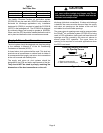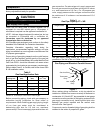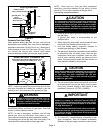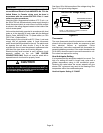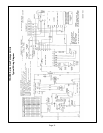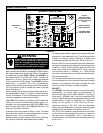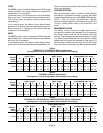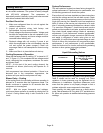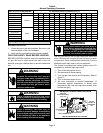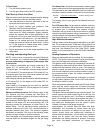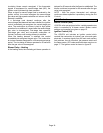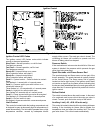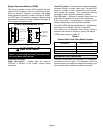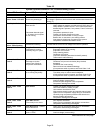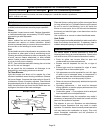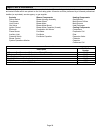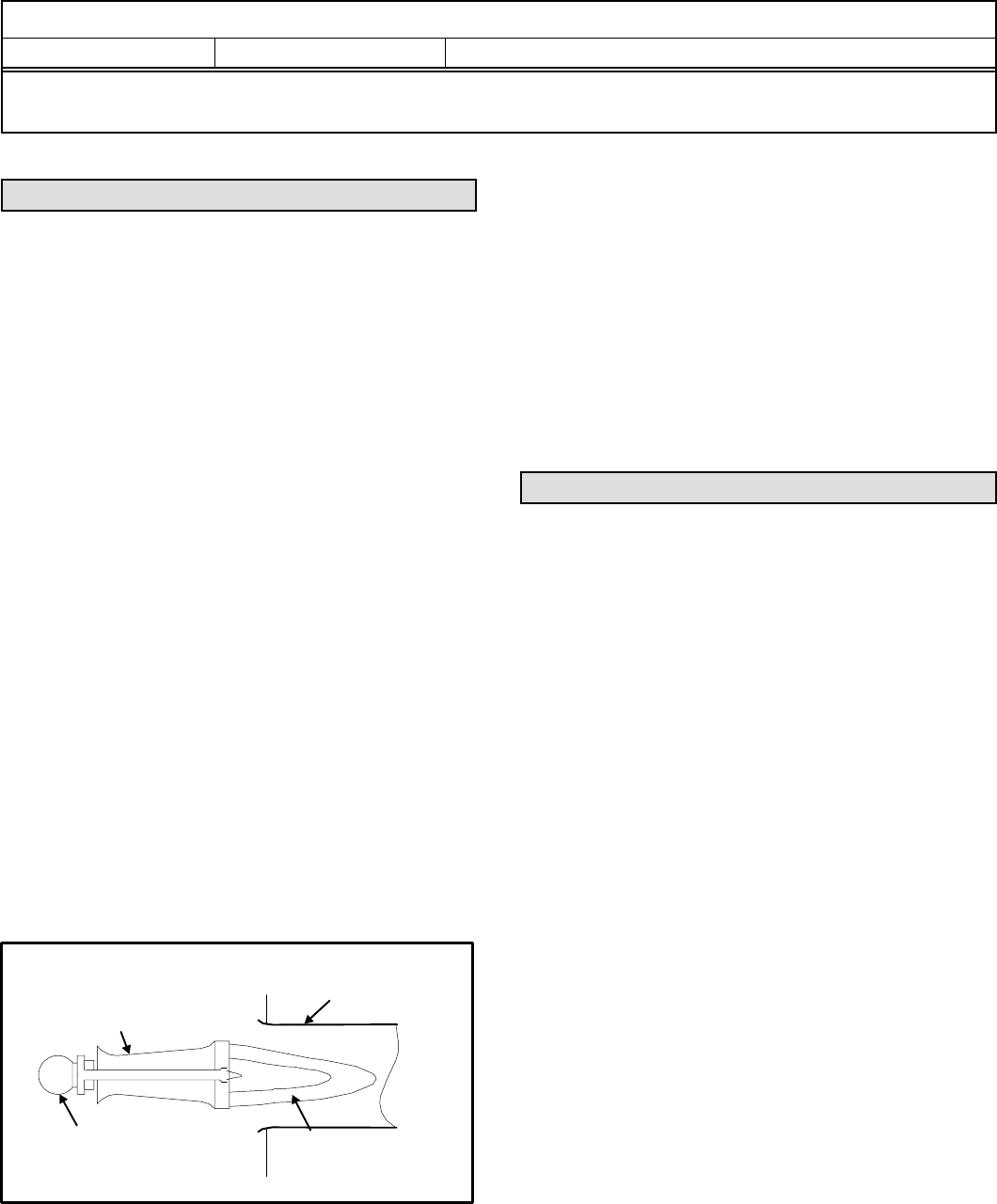
Page 23
System Operation Monitor LED Troubleshooting Codes
Status LED Condition Status LED Troubleshooting InformationStatus LED Description
*Flash code number corresponds to a number of LED flashes, followed by a pause, and then repeated. Reset ALERT flash code
by removing 24VAC power from monitor; last code will display for 1 minute after monitor is powered on.
NOTE − Code 8 is not used.
Maintenance
The GCSX15 unit should be inspected annually by a
qualified service technician to ensure proper operation.
Filters
Not supplied. Inspect once a month. Replace disposable,
or clean permanent−type, as necessary. DO NOT replace
permanent type with disposable.
Motors
Indoor, outdoor fan and vent motors are permanently
lubricated and require no further lubrication. Motors
should be cleaned yearly to prevent the accumulation of
dust and dirt on the windings or motor exterior.
Coil
Dirt and debris should not be allowed to accumulate on the
coil surfaces or other parts in the air conditioning circuit.
Cleaning should be performed as often as necessary. Use
a brush, vacuum cleaner attachment, or other suitable
means. If water is used to clean the coil, be sure the power
to unit is shut off prior to cleaning.
NOTE − Care should be used when cleaning the coil so that
the coil fins are not damaged.
Do not permit the hot condenser air discharge to be
obstructed by overhanging structures or shrubs.
To Clean Burners
Light the burners and allow unit to operate for a few
minutes to establish normal burning conditions. Observe
the burner flames. Compare this observation to figure 16
to determine if flame is properly adjusted. Flame should
be predominantly blue in color and strong in appearance.
Verify that all burners are lit and that the flame does not
impinge on the sides of the heat exchanger.
Burner Flame
Figure 16
Burner
Heat
Exchanger
Burner Flame
(Blue Only)
Gas
Manifold
Distorted flame or yellow tipping of the natural gas flame
(or long yellow tips on LP/propane flame) may be caused
by one or more of the following: lint or dirt inside the
burner or burner ports; lint or dirt at the air inlet between
the burner and manifold pipe; or an obstruction over the
burner orifice.
Use a soft brush or vacuum to clean the affected areas.
Vent Outlet
Visually inspect vent outlet periodically to make sure that the
there is no buildup of soot and dirt . If necessary, clean to
maintain adequate opening to discharge flue products.
Planned Service
You should expect a service technician to check the
following items during an annual inspection. Power to the
unit must be shut off for the service technician’s safety.
S Fresh air grilles and louvers Must be open and
unobstructed to provide combustion air.
S Burners must be inspected for rust, dirt, or signs of
water.
S Exhaust pipe must be inspected for signs of water,
damaged Rust or disconnected joints.
S Unit appearance must be inspected for rust, dirt, signs
of water, burnt or damaged wires, or components. A
good coat of auto wax can extend the appearance.
S Blower access door must be properly in place.
S Return air duct must be properly attached and provide
an air seal to the unit.
S Operating performance Ċ Unit must be observed
during operation to monitor proper performance of the
unit and the vent system.
S Combustion gases Ċ Flue products must be analyzed
and compared to the unit specifications.
Problems detected during the inspection may make it
necessary to temporarily shut down the furnace until the
items can be repaired or replaced.
Pay attention to your unit. Situations can arise between
annual furnace inspections that may result in unsafe
operation. For instance, items innocently stored next to the
unit may obstruct the combustion air supply. This could
cause incomplete combustion and the production of
carbon monoxide gas.



